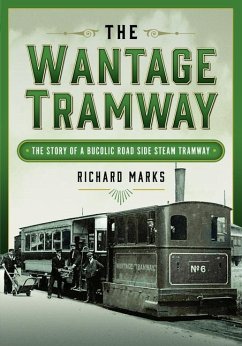Nicht lieferbar

The Railways of the Isle of Sheppey
Versandkostenfrei!
Nicht lieferbar
The Isle of Sheppey's railway network, built from 1860, supported its growth but declined due to economic challenges and closures. The Isle of Sheppey sits just off the north coast of Kent, where the Medway and Thames estuaries flow into the North Sea. Over centuries this was a place that was home to farmland, castles, a dock yard, an air station, industrial instalations, calm beaches and a population of islanders who have taken a pride in their home. To serve the needs of all of this a small railway network was built up and even an urban tram network. Included in this was a fixed link that wa...
The Isle of Sheppey's railway network, built from 1860, supported its growth but declined due to economic challenges and closures. The Isle of Sheppey sits just off the north coast of Kent, where the Medway and Thames estuaries flow into the North Sea. Over centuries this was a place that was home to farmland, castles, a dock yard, an air station, industrial instalations, calm beaches and a population of islanders who have taken a pride in their home. To serve the needs of all of this a small railway network was built up and even an urban tram network. Included in this was a fixed link that was the first to ever link the island to the mainland. From 1860 the network grew as the importance of the island grew. Continental boat passengers, dockyard workmen and day trippers, they were all caried on the trains and trams that shuttled about to, from and across the flat terrain of this often overlooked island. Being an island can create its own unique set of challenges and the railways on the island were certainly challenged by missfortune and circumstances, but the little network kept going until economics got the better of it and from there on it becomes a story of contractions and closure. The Island can still boast a railway today but it is far removed from the story of its past. This work seeks to tell the story of the railways on the island, how they came to be built, how they were run and how times changed over the following decades.














